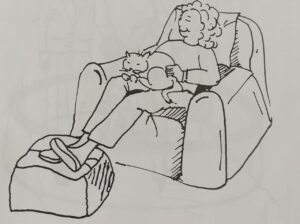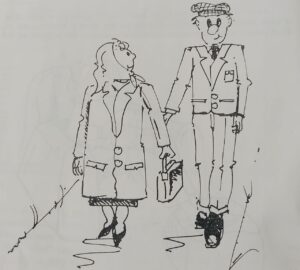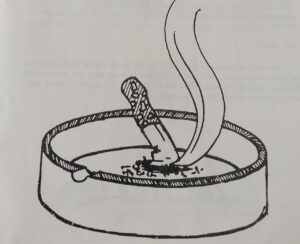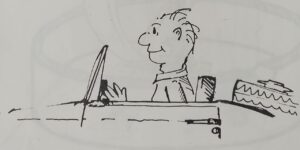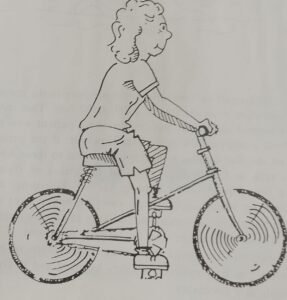Heart Attack: While most patients can get back to their previous way of life, if they are to make the best recovery and reduce the risk of a further attack, important modifications may have to be made.
Diet
It is not good for the heart to have to carry about too much weight. All heart patients should try to get their weight into the “ideal” range. Most patients who have a “coronary” have cholesterol levels that are higher than “ideal” and should endeavor to reduce them. In many cases, they are only slightly raised and can be lowered by diet; drugs for this purpose are seldom needed. The main target is to reduce the “saturated” fats in one’s diet as much as possible. The chief sources of saturated fats are high-fat dairy products, fatty meat, and palm and coconut oil. The total fat intake should be reduced but can be partly substituted by monounsaturated fat (olive oil) or polyunsaturated fat (e.g., oils and margarine labeled as polyunsaturated). It is a good idea to eat more fresh fruit and vegetables.
Chicken, fish, and skimmed and semi-skimmed milk are all good forms of nutrition. For further information on diet, consult “Food and Your Heart”, “Food Should be Fun” (both free from the British Heart Foundation), and the video “Lower Your Cholesterol in 6 weeks: A Plan to Last Your Lifetime” available from major retailers.
Stress
Stress is often regarded by the public and the media as the main cause of heart attacks, but scientific evidence for this belief is hard to come by. Heart attacks in prime ministers, orchestral conductors, and surgeons are not particularly common! Nonetheless, those who already have coronary disease can often be made worse by stressful experiences, and heart patients, their relatives, and their employers should endeavor to avoid those forms of stress that the patient finds difficult to cope with. Everyone should know how to practice and enjoy relaxation. On the other hand, many people thrive on stress and should not be deprived of the challenges they relish! Patients who have had a heart attack should think long and hard about the kind of things that they find particularly stressful. Frequently, these relate to the pressure of time. There is no alternative here to better planning of one’s day so that the bus or train can be caught without hurrying, and to the avoidance of filling the diary too full. At home, it is often the misbehavior of the children, worries over money, or discord amongst relatives that is distressing.
particularly common! Nonetheless, those who already have coronary disease can often be made worse by stressful experiences, and heart patients, their relatives, and their employers should endeavor to avoid those forms of stress that the patient finds difficult to cope with. Everyone should know how to practice and enjoy relaxation. On the other hand, many people thrive
on stress and should not be deprived of the challenges they relish! Patients who have had a heart attack should think long and hard about the kind of things that they find particularly stressful. Frequently, these relate to the pressure of time. There is no alternative here to the better planning of one’s day so that the bus or train can be caught without hurrying, and to
the avoidance of filling the diary too full. At home, it is often the misbehavior of the children, worries over money, or discord amongst relatives that is distressing.
Fortunately, many heart attack victims become more philosophical when they realize that they have so successfully cheated death and disability. When they take stock of their way of life, they begin to recognize that they could more easily delegate work in the office, let the children get on with their own lives, or they could get more fun out of life by taking on new leisure activities. Most of us need to learn how to practice and enjoy relaxation. Many patients who have recovered from a heart attack enjoy life more than they ever have before.
Smoking
Smoking is an especially dangerous habit after a heart attack. It increases the risk of a recurrence and should be forbidden. This is not easy for the hardened smoker who may need a lot of support from the family and the GP. For advice on how to stop, obtain “Smoking and Your Heart” (HIS 10) free from the British Heart Foundation.
Sexual Intercourse
Both patients and their partners are understandably worried about returning to sexual intercourse. Because of the physical effort and emotion involved, it inevitably increases blood pressure and the work of the heart. In some people, this can cause angina or breathlessness, but in the vast majority of cases, sexual activity can be resumed as soon as the patient can take other forms of moderate exercise (e.g., walking upstairs) without symptoms. It should be started gently, and given up if chest pain develops. Glyceryl trinitrate immediately beforehand may prevent the development of
symptoms, as may the regular taking of beta-blockers. The GP should be consulted if there are any doubts about the wisdom of resuming sexual activity.
Alcohol
One or two glasses of wine a day, or half to one pint of beer a day, does no harm to the heart, and can be resumed soon after the heart attack. Heavier consumption may affect the heart and will provide calorie,s which will not help a weight reduction programme.
Driving
The patient who has recovered well from a heart attack may be able to start driving again about 4 weeks after the attack. Those who are receiving medicines or who have had a complicated course should consult their doctor before resuming driving. Drivers should return to driving by doing short runs in the neighborhood and be accompanied by a friend or relative. It is often not the driving itself that can cause problems, but the physical and emotional stresses associated with a car accident or breakdown. Those who have attacks of angina at rest or after resuming driving need medical attention and should inform the Licensing Centre in Swansea of their disability. Professional drivers who hold heavy goods (HGV) or public service (PSV) licenses must inform the Licensing Centre of their illness. They will not normally be allowed to hold such licenses but may be considered for reinstatement after some months if their attack has been mild and various tests have shown that the risk of further trouble is small. Drivers should also consult their insurance policy (or Company) to see whether there are restrictions relating to those who have had heart attacks.
Sporting Activities
Some forms of physical activity are particularly suited to those recovering from a heart attack. These include walking, cycling, and swimming. In each case, the activity should be started at a relatively low level and gradually increased. Cold should be avoided, as should high winds. Vigorous types of exercise (such as squash and weightlifting) are not to be encouraged, but tennis, badminton, golf, and similar sports can be taken up.
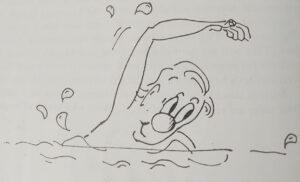
Flying
Most civil aircraft are pressurized, the pressure in the cabin being held at a level equivalent to an altitude of 5000- 6000 feet. This has little or no effect on the normal individual but could make a patient who has not fully recovered from a heart attack breathless. However, if the patient can walk 100 meters on the flat without symptoms some two to three weeks after the attack, it is safe to fly. Much of the stress of flying is due to problems on the ground rather than in the air. Hurrying along endless corridors, climbing steep aircraft steps, carrying heavy bags, and hassling in Customs and immigration are much more likely to cause symptoms than the flight itself. These difficulties can be largely overcome if the airline is warned of the patient’s problems in advance. Wheelchairs or buggies can be provided, porters can be employed to carry baggage and in-flight oxygen is available if medically necessary.

